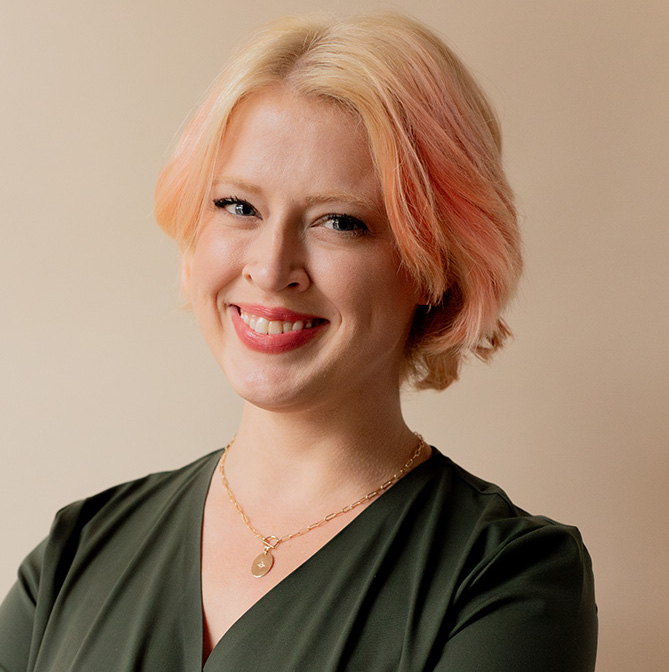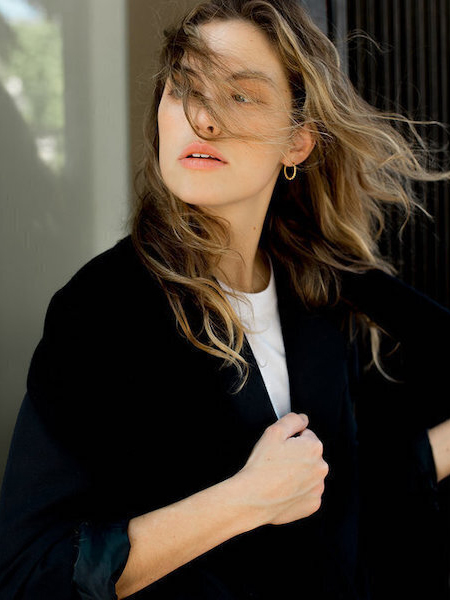
The Everyday Magic Of Noticing
The leaves of my Cordyline plant glow fuchsia in the late afternoon sun, the light dancing across the shiny leaves like they’re ablaze in the breeze. Somewhere in the distance, I hear a welder working on a new build, and I can smell my neighbor’s simmering dinner through his open window. I am doing nothing, only noticing.
Time seems to stand still when I do this. The whole world feels mine when I stop to recognize the moment, and the clamor of my to-do list hushes to a whisper. It’s all still there, it’s just…quieter. And it’s simple. You can’t swipe to the next story when it’s the world you’re watching.
Life’s been moving too quickly for me lately. I’ve been on autopilot, checking off boxes for the sake of checking them off. I’m constantly adjusting my vision to fit the full picture of my life at work, at home, in my relationships. I smash all the details together like playdough, because my mind hasn’t been able to keep up with them all individually. I tell myself it’s easier that way.
“I’ve been so zoomed out, that the minutiae of my daily life has dissolved.”
But oversimplifying my life only makes time move faster. Trying to comprehend the “big things” all at once is exhausting. As in, it takes a lot more energy to contemplate the meaning of existence than it does to decide whether to have soup or salad. By focusing on the whole (like the meaning of existence), I wear myself down to the point where I no longer have the energy to decide what to eat. I’ve been so zoomed out, that the minutiae of my daily life have dissolved.
One day this past summer, when my mind was clouded with sadness, I discovered how much I had lost in the whirlwind. My doom boxes were particularly full and my refrigerator was empty—I needed a get-my-life-together montage. All I could think about was how I failed at keeping a tidy home, how I failed at meal planning, how I failed myself. I didn’t want to be better, I wanted to be perfect.
“I couldn’t handle the big things anymore, so my vision narrowed, and narrowed again until all I saw was what was physically right in front of me.”
In that self-judgment spiral, I started to shut down—to revert to factory settings. I couldn’t handle the big things anymore, so my vision narrowed and narrowed again until all I saw was what was physically right in front of me. As if I knew it would be important someday, I took a picture of my unmade bed and the pile of clean laundry on top of it, surrounded by dirty laundry on the floor below. It wasn’t beautiful, but it was the truth of my present moment. It was grounding to just be present, knowing I was supported by a thousand storylines that led to that messy bedroom on that day.
I noticed, for the first time in a long time, how my life was laid out before me at every turn. And by noticing the smallest things, I could begin to slow down and see my life more clearly.
I went on to notice how my cat’s black fur turns a stripey brown when she’s laying in the sunshine, and how a little hummingbird comes by my front door each morning looking for flowers. I noticed a moth struggling with a broken wing, so I picked it up and offered it some melon. It climbed to my shoulder and stayed there until I set it in a safe place among my plants.
I listened to conversations of the pedestrians walking by, thinking about all the stories that had ended. And I watched the planes over Los Angeles, thinking about how so many stories are just beginning.
“‘Eye on the prize,’ we’ve been told. But what is the prize, if not the present?”
These details get lost in our day-to-day, when we’re in such a hurry to arrive, or achieve, or complete. “Eye on the prize,” we’ve been told. But what is the prize, if not the present?
Sometimes these little moments of magic are slight—like the curious glimmer of a copper valve cap poking through a silver hubcap on a car at the stoplight. Other times, they’re messages from the universe, reminding us of what’s important. Like when I notice my rabbit’s eyes clouding with cataracts, I give her treats and soft pets knowing our time together is precious. Or I notice how much my smile looks like my grandmother’s, or how quiet my friend has become in a conversation. As I practice noticing the mundane, I’m becoming more tuned in to the important things that make life so beautiful.
Noticing, I now notice, is also opening up an abundance that I haven’t felt in a while. Paying attention has given me new favorite songs, new friends, and new opportunities I never thought I’d have. I think what I’m trying to say is that what you notice, notices you back.
Truth is, I’m still exhausted. But by noticing, and letting myself be fascinated by, these moments I’m uncovering more bubbles of joy than I had before. Life feels just a little bit richer, and a little slower once again.
“Life feels just a little bit richer, and a little slower once again.”
It’s time to give the world the recognition we want for ourselves because I’ve found that it returns back to me each time I do. No details are too small—the way your shower tiles are laid out, your librarian’s new haircut, the nametag on your cashier that’s decorated with little star stickers. All of these things have stories, and it’s worth a moment of consideration before we drown them out with the next podcast or the next task on our list.
So what is it that you’ve lost sight of? Which details have been lost in the hurry of your day, or the noise that surrounds you?
Let’s notice them together.
Emily Torres is the Editorial Director at The Good Trade. Born and raised in Indiana, she studied Creative Writing and Business at Indiana University. You can usually find her in her colorful Los Angeles apartment journaling, caring for her rabbits and her cat, or gaming.




